Coastal Studies Institute and ECU Outer Banks Campus are known for renowned research and excellent educational programs. K-12 programs reach far and wide serving children and youth from around North Carolina and the surrounding states. UNC-Chapel Hill students can take classes at CSI during the Fall through the Outer Banks Field Site, and ECU students have the opportunity to study on the Outer Banks Campus in the Spring for the Semester Experience at the Coast. And while each of these programs is a popular choice for its respective age group, there is another ECU program, the Integrated Coastal Sciences Ph.D., that is unsung but just as wonderful!
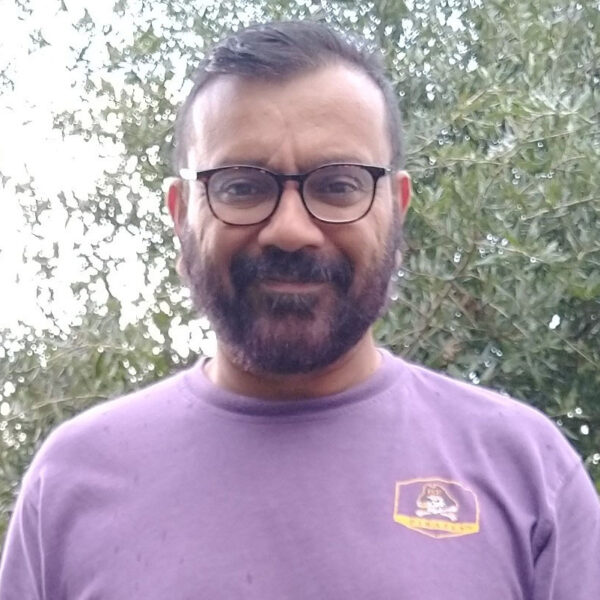
Dr. Sid Mitra
The Integrated Coastal Sciences (ICS), formerly known as Coastal Resources Management, Ph.D. program is an interdisciplinary approach to educate students about the complex, yet often related, problems that coastal systems all over the world face. According to Dr. Sid Mitra, Interim Chair of the Department of Coastal Studies and ICS Ph.D. Program Director, ICS is “ECU’s flagship, coastal Ph.D. program. It is truly a unique program in that students receive training in both natural and social sciences – not something you find in a lot of PhDs- and both types can be found in the students’ dissertation research.”
To obtain an ICS degree, each student must complete core courses including Coastal Ecological Processes, Coastal and Marine Economics and Policy, Coastal Geoscience, Human Dimensions of Coastal Management, and a research ethics course. Once the core courses are complete, each student must choose between Coastal Natural Sciences and Coastal Health and Social Sciences as their primary and secondary foci, and complete further coursework as applicable to their studies. Finally, each student participates in coursework for research methods and integrative problem-solving in addition to completing a dissertation. Dissertation topics have ranged from water resources or management in the coastal plain to offshore issues such as sand resources management or ciguatera toxicity in humans and fishermen’s perception of it.
Whether part of their scientific journey prior to their acceptance into the program or not, each Ph.D. student gets hands-on experience with fieldwork in their core courses. They take labs and learn what it takes to gather data in the field. Later in their ICS experience, many will return to the field as they tackle the research needed to answer their dissertation questions.
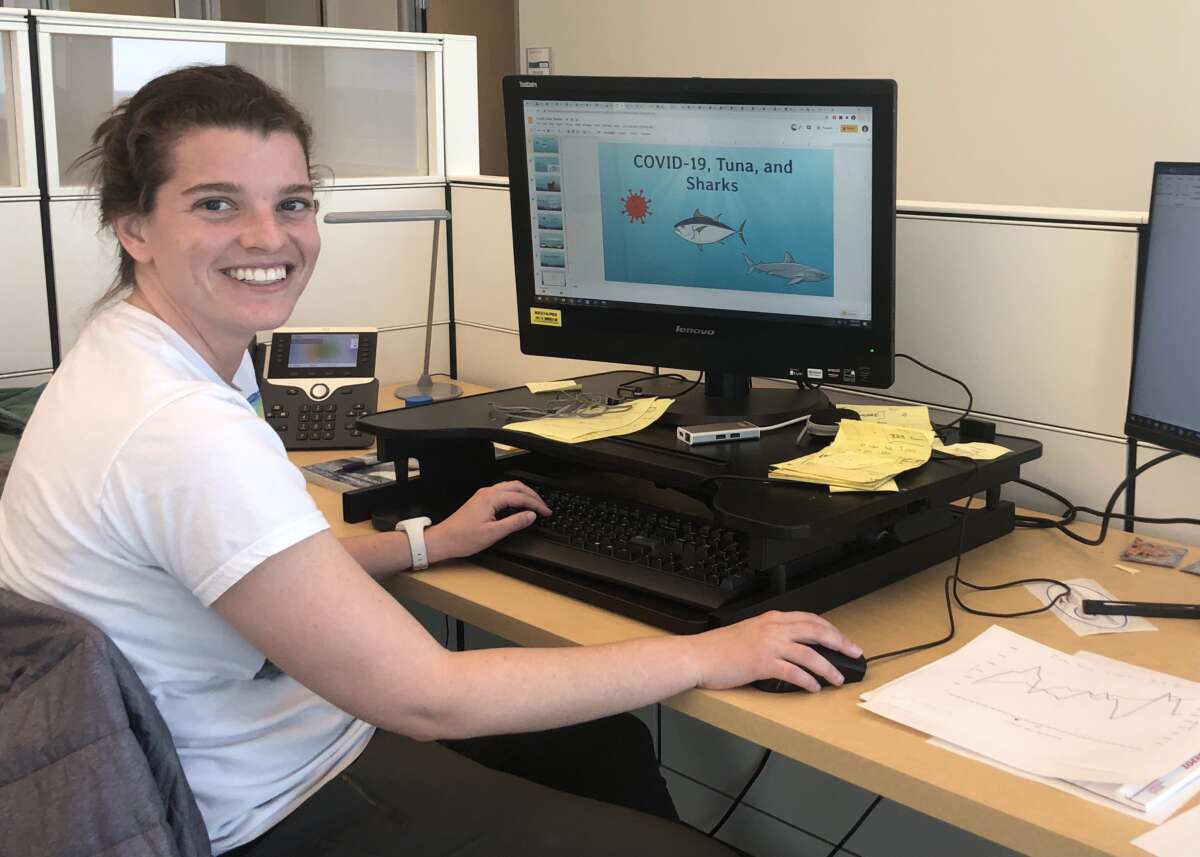
As students work through their core classes, they are assigned smaller collaborative projects. First-year student Sam Farquhar and her group are currently researching the effects of COVID-19 on the fishing industry and will present their findings to their peers.
So why is the ICS Ph.D. program important?
All throughout the ICS experience, the students become increasingly aware of the training needed to study and solve coastal issues. Mitra explains, “Wicked, complex problems at the coast take a team of researchers to solve. To be successful at solving these complex coastal problems, one needs to understand what kind of team to put together, what kinds of language to understand and speak, and what types of skills and datasets will need to be analyzed. Students get all of that training through our program.”
“This coastal Ph.D. program trains the students to address complex problems from multiple perspectives and present them, from day one, to social scientists and managers, then translating and communicating that science to a broad audience.”
And what do the students have to say about the program?
Many share Mitra’s same sentiments, and all agree that it is an incredibly worthwhile experience.
Henry Raab, a recent alumnus of the formerly known CRM program, is currently a postdoctoral scholar with the Oak Ridge Institute for Science and Education (ORISE) hosted by the Environmental Protection Agency in Chapel Hill, NC. During his time in the ICS program, he studied the socio-ecological dynamics of a highly potent marine toxin called “ciguatera”. The toxin stems from algae in tropical and subtropical marine regions and often enters the food web. If humans consume an infected marine species with high enough concentrations of the toxin, it can cause a very serious illness called “ciguatoxin fish poisoning”. Raab interviewed fishermen, determined regions of high toxicity, and predicted toxicity time frames as part of his dissertation.
When asked about his CRM experience, Raab shared, “There are countless valuable experiences that I had at ECU, but if I had to choose it would be two things. One was how to think like, and be, an independent researcher. The other was how to be a much better scientific writer. Most people think science is all lab work and statistics, but really most of what you do is write. You need to write grant proposals, annual updates to grant agencies, publishable papers, abstracts for conferences, and eventually a dissertation.”
Anja Sjostrom, a student in her second year of the program, is stationed at the ECU Outer Banks Campus as she works on the degree requirements. While completing her coursework this semester, she has begun to work on putting together her proposal and committee and is exploring preliminary open-access ecological, oceanographic, and social data on the California Current Large Marine Ecosystem. Thinking long term, she says “My goal is to work with partners across multiple research institutions, agencies, and communities on complex coastal issues. I am particularly interested in how climate change impacts highly migratory fish species and the coastal livelihoods and ecosystems that depend on them.”
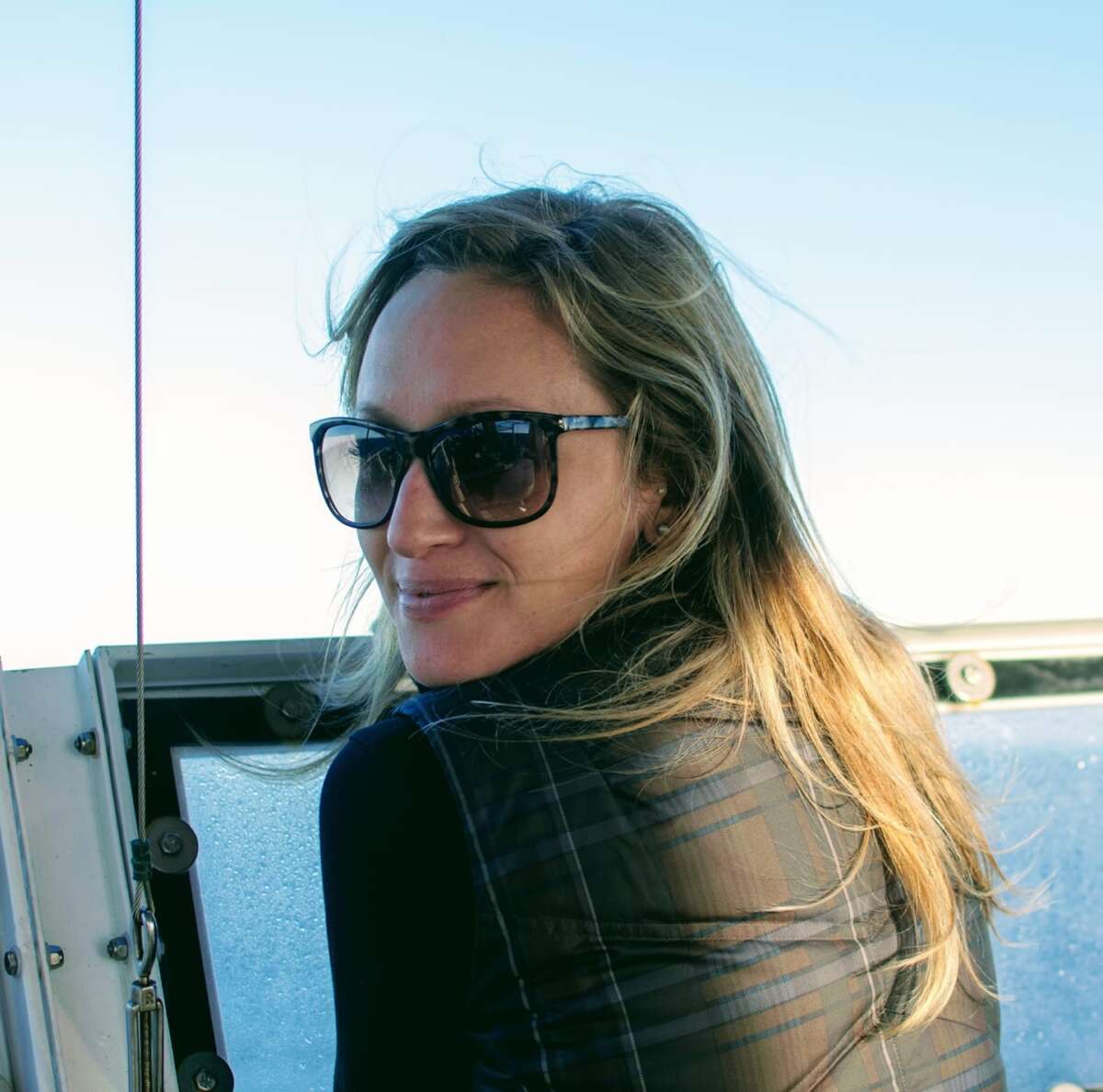
Anja Sjostrom
Sjostrom believes the ICS program will help her get to that point, sharing that she chose the program because of its “focus on creating stronger lexicons and processes of successful collaborations across inter and transdisciplinary spaces.” Already, she has seen a shift in her way of scientific thinking. “My advisor Dr. Cindy Grace-McCaskey’s expertise in anthropology is helping me to transition from a more natural science background into interdisciplinary research methodologies on marine fisheries’ social-ecological systems.”, she shares.
First-year student Jaclyn Best has been busy this year with courses focusing on research and proposal design, research methods, and coastal and marine economics and policy. Though she has been in the program the least amount of time, she already has ideas for what she wants to accomplish. She has been studying freshwater systems and is interested in drought-related regulations in North Carolina. She explains, “Although most people think of North Carolina as a very water-rich state, it does and has experienced droughts, which can have consequences both upstream and at the coast and intertidal regions. Yet there is a lack of research and minimal state regulations on what happens during a drought. I’m interested in understanding the perceptions and power of non-state actors regarding potential regulation on water consumption during periods of drought.”
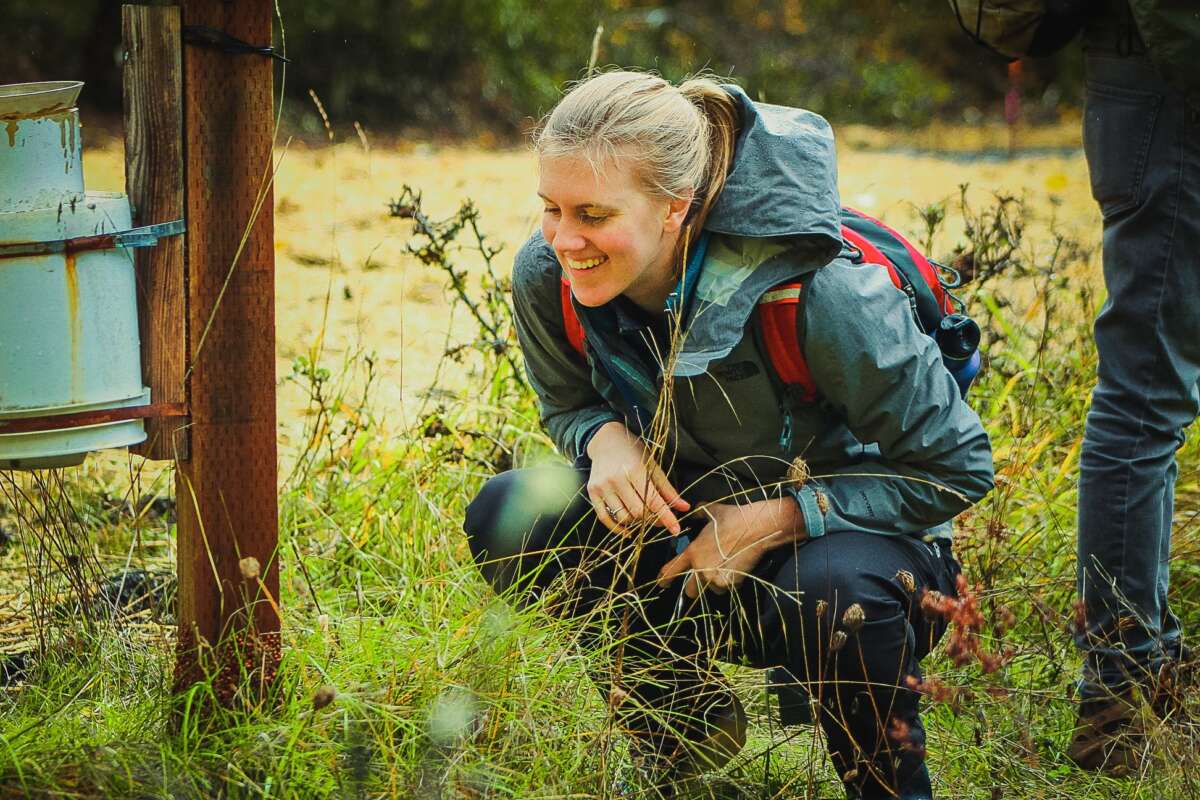
Jaclyn Best
Best isn’t completely sure where the ICS path will take her, but she is excited to expand her own understanding and reach across disciplines in her efforts to study freshwater to make the most impact. “I am passionate about not doing research for research sake, so whatever I end up focusing on in the next three-plus years I want to make sure that the end result has an impact on the region and community that I study.”, she states.
While Best is just getting started, Brian Bartlett is in the midst of his fourth year in the program and is nearly finished with the first chapter of his dissertation. He’s studying ocean physiology, particularly in regard to climate change, and its influence on fisheries economics, and he hopes he’ll be able to publish his work in journals that resource managers read so that his findings can influence change.
Aside from his research findings, Bartlett believes the most valuable thing he has learned so far is thinking outside of his discipline. He explains, “I feel that as you progress deeper into a discipline, you become more ingrained in that method of thought. Taking classes from other disciplines has helped me to realize that my mindset can often be too myopic and that looking at things from different angles can really create a better worldview.”
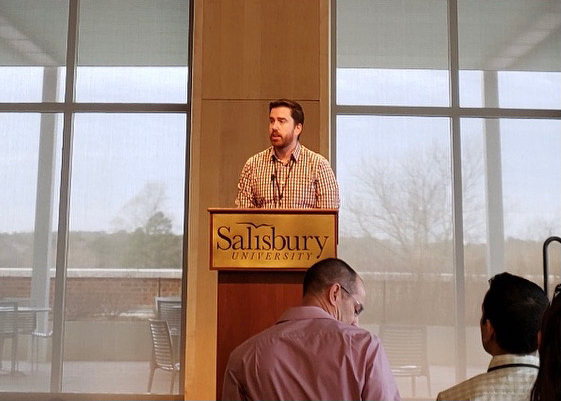
Though Bartlett’s research is mostly model-based at the moment, he did have the opportunity to present his work at the local American Fisheries Society meeting that was held in Salisbury, Maryland a few years ago.
So, it’s all there. The Integrated Coastal Sciences Ph.D. program is most definitely something to write home about. It helps students solve wicked, complex coastal problems. It gives them training in both natural and social sciences. It teaches them to become better scientific writers, to adopt various ways of thinking. And last, though certainly not least, it facilitates better worldviews. When all of that is in play, what’s not to like?

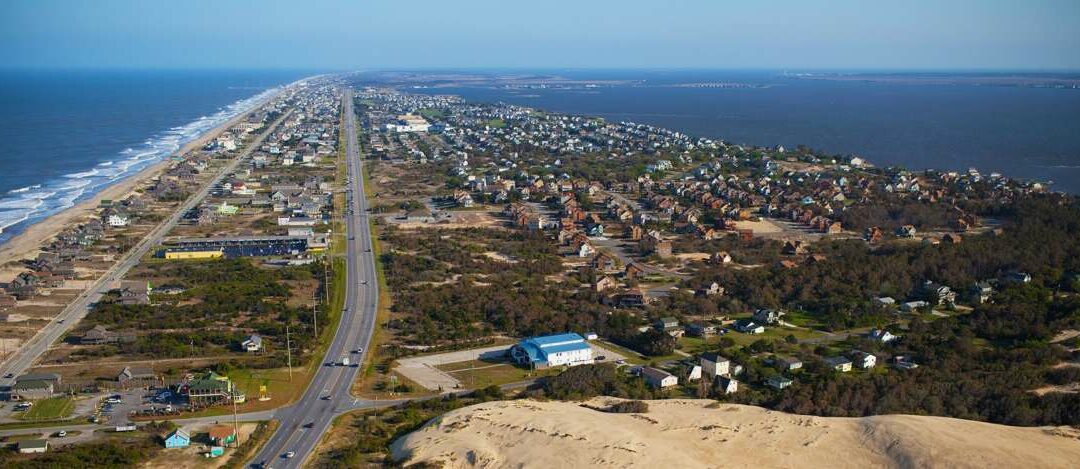

 Based at the Coastal Studies Institute (CSI), the North Carolina Renewable Ocean Energy Program (NCROEP) advances inter-disciplinary marine energy solutions across UNC System partner colleges of engineering at NC State University, UNC Charlotte, and NC A&T University. Click on the links below for more information.
Based at the Coastal Studies Institute (CSI), the North Carolina Renewable Ocean Energy Program (NCROEP) advances inter-disciplinary marine energy solutions across UNC System partner colleges of engineering at NC State University, UNC Charlotte, and NC A&T University. Click on the links below for more information. ECU's Integrated Coastal Programs (ECU ICP) is a leader in coastal and marine research, education, and engagement. ECU ICP includes the Coastal Studies Institute, ECU's Department of Coastal Studies, and ECU Diving and Water Safety.
ECU's Integrated Coastal Programs (ECU ICP) is a leader in coastal and marine research, education, and engagement. ECU ICP includes the Coastal Studies Institute, ECU's Department of Coastal Studies, and ECU Diving and Water Safety. The ECU Outer Banks campus is home to the Coastal Studies Institute.
The ECU Outer Banks campus is home to the Coastal Studies Institute.

